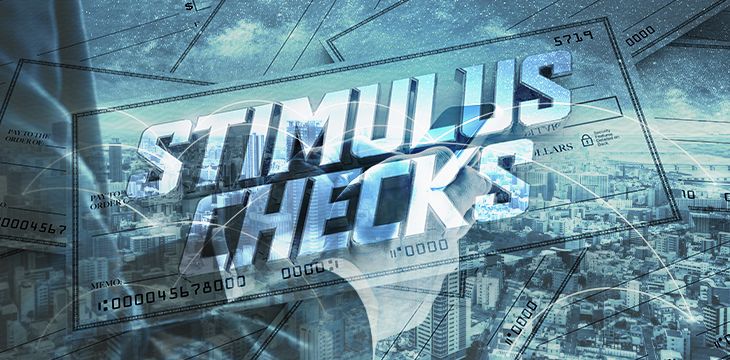|
Getting your Trinity Audio player ready...
|
The U.S. Treasury was discovered to have distributed stimulus payments in amounts of up to $1,200 to about 1.1 million deceased individuals. In other words, nearly $1.4 billion worth of stimulus money was distributed to dead people in the United States.
$1.4 billion is a lot of money; if that money was not misallocated, then there’s a good chance that the U.S. economy would recover faster from the economic damage inflicted on it by the coronavirus pandemic.
According to the Government Accountability Office, one reason that this economic blunder took place is because the Treasury Department and its Bureau of Fiscal Service—which issued the stimulus payments resulting from the CARES Act—do not have access to the social security administration’s death records.
It’s becoming increasingly clear that manual processes, like most government procedures, are not efficient. However, if the U.S. used a blockchain-based digital identity system there is a high probability that this economic mishap would not have happened.
What is a digital identity solution?
A digital identity solution is when identity information related to an individual or entity is stored in a computerized system instead of kept in filing cabinets.
A digital identity solution has a significant number of benefits over a system that requires several government agencies to keep separate records in walled off silos. For instance, the chance of human error taking place—as it did with stimulus payments—is less likely to take place because communication between government offices would be seamless.
A digital identity solution built on a blockchain would account for an individual in multiple areas of their life, without requiring government offices to make phone calls or send messages to other government organizations for them to obtain data. If identity was digitized on the blockchain, each government organization could have access to a person’s digital identity and update it as needed; that way, the digital identity would encompass all of an individual’s records in one location.
If this was the case, an individual’s digital identity would contain information uploaded by the social security administration, as well as information from the treasury department, so that the fiscal service would know who is still living and should receive a stimulus payment—and who isn’t—just by looking at that one identity stored on the blockchain.
Bitcoin identity Solutions
The release of Maxthon 6 Beta marks the latest development in digital identity solutions on the Bitcoin blockchain.
VBox, a blockchain identity manager and digital asset wallet, is the main blockchain-based tool on Maxthon 6. It can be thought of as the on-chain equivalent to an all-encompassing account login, similar to how platforms let individuals log in with their Gmail or Facebook accounts. But unlike the inferior Gmail and Facebook log-ins, your on-chain identity cannot be deleted, and all of the information tied to the identity is recorded on chain and can even be monetized.
Maxthon is a pioneer in the on-chain identity space and their API gives app developers an easy way to integrate blockchain ID and blockchain ID compatibility into their own platforms and services.
Will we see digital identity in the future?
More and more government processes are getting fully digitized. As governments around the world explore digital money (central bank digital currencies) it would only make sense for digital identity solutions to follow shortly after.
The world would benefit from a one size fits all identity solution that coincides with the digital lifestyles a majority of the population lives. Hopefully, the federal government’s recent stimulus mishap will accelerate the research and development of digital identity solutions.

 02-21-2026
02-21-2026 




